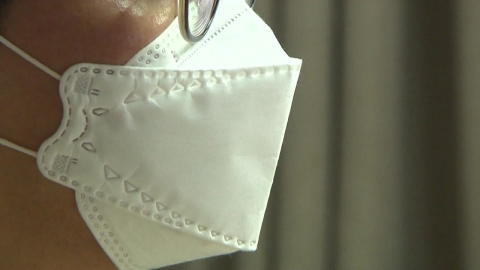■ Starring: Jeong Cheol-jin, economic critic
* The text below may differ from the actual broadcast content, so please check the broadcast for more accurate information. Please specify [YTN News PLUS] when quoting.
[Anchor]
The Bank of Korea slashed its key interest rate by 0.25 percentage point to 3.25 percent for the first time in three years and two months.
It seems to be an option to revive the domestic economy, which has lost its vitality due to continued high interest rates, but there are still concerns that it could stimulate housing prices and household debt in the Seoul metropolitan area. Let's take a closer look at it with Chung Chul-jin, an economic critic. Please come in.
[Jung Chuljin]
How are you?
[Anchor]
It's been a while since you lowered interest rates, so how do you analyze the background of the cut?
[Jung Chuljin]
That's right. It's been a long time. It's been three years, two months, and 38 months since we've cut interest rates. I'd like to tell you about three keywords. The first is inflation, the second is domestic demand, and the third is the United States. The central bank, or the Bank of Korea, is the main purpose, and the role is to control inflation and stabilize prices, right?
In September, prices in Korea fell to 1.6% and to the 1% range. It's been almost three years and eight months, and we can't feel it well, but anyway, we saw 1% in figures, so the reason for the rate cut has grown a lot. The second is domestic demand. If you look at the Korean economy now, exports are good, but they are very good. I think it will export more than 700 billion dollars this year than Japan, but isn't domestic demand very difficult?
In particular, the economy experienced by small business owners is so bad that they lower interest rates to add to the cost burden or interest burden. Also, the second goal was to make some money circulating, especially in domestic demand. The third was the United States. The interest rate gap between us and the U.S. is so wide. It was about 2 percentage points, but you may have seen a lot of news, but as the Fed carried out a big cut of 0.5 percentage points in the U.S., we can also cut interest rates from the perspective of the Bank of Korea, and these three aspects that opened up our breath can be seen as the background.
[Anchor]
As you said, the Fed cut interest rates by 0.5 percentage points last month. But is there a reason why we can't cut interest rates at the same rate as the United States when we cut less than the Fed cut?
[Jung Chuljin]
We looked at the table earlier, but this itself is the difference in interest rates between the United States and us, and that is the reversal of interest rates. The situation in which the U.S. has higher interest rates than ours must have been burdensome now. If we also made a big cut of 0.5 percentage points, wouldn't it be maintained by 2 percentage points? So, it can be said that it dropped 0.25 percentage points, which is less than the U.S., and the other is that the U.S. side has made a big cut, but the U.S. economy is not bad right now. Employment is good, isn't it? Then, you don't have to cut interest rates at the U.S. November FOMC meeting on November 6th. So, I thought this was the perfect pivot, a rate cut, but there was also a pause in the U.S. Maybe those things can be a decision like this, let's put down about a quarter of a percentage point and watch the trend.
[Anchor]
Lee Chang-yong, governor of the Bank of Korea, also indicated an additional cut, but he said it was a hawkish cut this time. 0. 25%, but I don't understand this. Why is that?
[Jung Chuljin]
He made a very good point about the hawkish interest rate cut, but I think the governor of the Bank of Korea and Lee Chang-yong would have been more worried than anyone else this time. Because, as mentioned earlier, looking at the current situation in the U.S., such as prices and the domestic economy, it would have been easy to cut interest rates. However, the fact that Lee Chang-yong has been emphasizing is that the household debt problem is too serious. House prices will rise again if they are cut. It went up a lot now. Because of this, he said we need to tighten it more and tighten it.
But if you keep talking like that, the household debt and housing prices have not been resolved well, but you're getting off? This would have been quite burdensome. So, even though I'm getting off this time, I told our people that the sign was not as if I was continuing to cut interest rates in the future. I got off because I heard that it could actually lead to a freeze, but my inner mind was that I didn't want to get off, but I got off, so you can understand it like this. We divide it into hawks and doves and cut interest rates. That's why we're cutting interest rates in South Korea. This evaluation is coming out.
[Anchor]
Then, it's the last Monetary Policy Committee of this year next month, and I guess there will be no additional rate cuts at this time.
[Jung Chuljin]
That's right. It's called forward guidance because the Fed is a dot plot, and not only the Fed members, but all the Fed members are dotting on their opinions. Just as we forecast future interest rates, the Bank of Korea introduces this and receives it from forward guidance and monetary committee members three months later. Many members of the Monetary Policy Committee have proposed interest rate levels, 3.25, after three months. It's down 0.25 right now and it's 3.25. If so, there is only one left this year, the Monetary Policy Committee in November. It goes to a freeze and it's very likely that it's going to move on to next year if it gets off.
[Anchor]
Representative Jang Yong-sung is a member of the Monetary Policy Committee. It is known that there was a slight crack in the frozen minority opinion. Why did you insist on freezing in this atmosphere?
[Jung Chuljin]
I think Chang will see a slightly different result. Usually if you look at the other side of us raising interest rates and lowering interest rates, the economy is good, which is raising interest rates if it's tolerable. The economy is so bad right now that I'm lowering interest rates when I say I need to save it. The Bank of Korea also lowered its economic growth forecast as it cut interest rates this time. But in the case of Jang Yong-sung, the Monetary Policy Committee member, I think the Korean economy is still good. Instead of cutting it in advance, I held out a little longer and focused on the aspect that it would not be too late to get it down after seeing the policy effect. There are rumors like this.
[Anchor]
However, some pointed out that they missed the timing of a rate cut when they froze interest rates in August. So, it seems that it is difficult to make up for the sluggish private consumption because interest rates are cut at a time when uncertainties over the recovery of domestic demand have already increased, so how should we look at it?
[Jung Chuljin]
In the U.S., Fed Chairman Jerome Powell is being criticized the most, like why he preemptively dropped 0.25 in July and 0.25 in September. He was dragging him to not pay in July, but he said, "Why did you do the big step in September?" Bank of Korea Governor Lee Chang-yong acted as if he would not lower interest rates due to household debt and housing prices, but he said he would lower interest rates anyway. The reason for the rate freeze and tightening is house prices and household debt, but nothing has been solved. It is true that if we had gotten off, we should have gotten off last August because domestic demand is so bad. We are also coming up with practical theories about why we did this, just like the United States.
[Anchor]
0. Can our domestic demand and real economy revive by lowering interest rates by 25 percentage points?
[Jung Chuljin]
This is a dilemma and homework. It is very simple for us to lower interest rates, so if the interest rate is low, the interest burden will be reduced. If so, households will have extra money and use that money to spark domestic demand. This is not to export domestically, but to have money circulating in domestic demand. That's the purpose of monetary policy's interest rate cut, but the problem was that it lowered interest rates like this. Then, households should spend money. They should buy a house instead of spending. Then all of this doesn't go as planned. Because if the money goes to house prices, households tighten their belts again to pay off the interest if they pay a huge 200 to 300 million debt. There is also a possibility of such a vicious cycle. Therefore, we believe that this should not go to real estate and that the money should turn toward domestic demand to have the effect of the interest rate cut on the recovery of the domestic economy.
[Anchor]
So, as you said, there are concerns that a rate cut will increase household debt and stimulate housing prices again, as the Monetary Policy Committee feared. In the case of Lee Chang-yong, didn't he keep sending warning messages to young people?
[Jung Chuljin]
He kept sending it and he sent it again today. It's falling now, but the era of ultra-low interest rates below 1% as in the past COVID-19 will never come again, so we continue to warn young people, so please pay enough for the interest. But the message you're sending to the market may be a little different. If you warned me like that, I'd rather freeze it again this time. There can be objections like this. Therefore, it can be seen that the desire of young people to buy houses should end only when housing prices and real estate stability are stabilized empirically. As a result, the Financial Supervisory Service chief came out earlier and the Financial Services Commission chairman said he would consider regulating household debt while regulating loans, but I keep saying that if these money goes to real estate again, it could be more counterproductive to revitalizing domestic demand.
[Anchor]
If you look at household loans. Since household loans rose so high last month, they rose so high in August that the increase in household loans in September is high, but it doesn't look that high. Is it at this level or dangerous? Or is it okay?
[Jung Chuljin]
That's right. If you describe it as reduced... the growth rate has decreased, but in August, the second phase of stress DSR will be implemented from September, so 9.7 trillion won will come out on the 30th, which is the increase in household debt of 5 trillion won in September. If you look closely, it's in the average band, and there's a lot of money in the 5 trillion won range. Also, in September, there is a holiday called Chuseok, so a week would have been closed. Nevertheless, borrowing 5 trillion won does not mean that the current increase in household debt has never been dampened. I think our authorities should also keep this in mind.
[Anchor]
And usually, when the base rate is lowered, the loan rate usually goes down. However, there is also an analysis that there is not much possibility of a major change this time, so why is that?
[Jung Chuljin]
If you look at the past two years or so, even though it is not a commercial interest rate, a bank bond rate, a government bond rate, or even a corporate bond, this interest rate bond clearly affects the Bank of Korea even if it raises and lowers its base rate, but it looks at the U.S. completely. So the direction of the Fed in the United States. That's why it follows the direction of the 10-year Treasury bond rate, which is the market rate, in the big framework of the United States. So, even though we cut the benchmark interest rate this time, whether or not my mortgage interest rate will fall is affected by the Bank of Korea, but the tendency to look at the US bond market and the US 10-year Treasury bond rate is quite large, so it is right for my boss to look at the US bond rate, rather than a little unknown, because it is right to look at the US bond rate.
[Anchor]
Shall we talk about the stock market? From our common sense, we've seen something like this that causes a boom in the stock market when interest rates go down, but when we saw it today, it fell a little.
[Jung Chuljin]
That's right. In the medium term, interest rate cuts are actually a stock downturn. Rather, when stock prices rise, interest rates are raised, but these short-term events, especially since we've lowered interest rates in 38 months now, in 3 years and 2 months, so the stock market should welcome them for a day today, but the stock market, which was expected to rise as a result, ended and ended the rise, and in the case of KOSPI, it was rather weak. There's a reason. The reason is that foreigners continue to sell Korean stocks since July.
But another reason is that we have to check it later, but is it selling Korean stocks now or only Samsung Electronics among Korean stocks? It's quite confusing right now. Because about 25-30% of the Korean stock market is Samsung Electronics. Since July, foreigners have sold almost 11 trillion Korean stocks every day, 90% of which are now sold only by Samsung Electronics. So, we need to check this later, but Samsung Electronics, the No. 1 stock and the largest stock, continues to slide like that and sells it when foreigners open their eyes and sell it the next day, so for now, the domestic stock market itself has come out with such a result even amid this interest rate cut event. Let's analyze it like this.
[Anchor]
You just talked about Samsung Electronics, but it closed at 50,000 electronics today as well. Then, is there an influence on the sale of foreigners and is there anything else?
[Jung Chuljin] It's
right. It's supply and demand and materials. Stocks are supplied, bought and sold, ingredients, and events. It's about the performance of this place, whether it did well or not. Samsung Electronics is currently in the worst phase of both supply and demand and performance. In terms of supply and demand, it was sold every day in July when it fell from 87,000 won to 59,000 won. That's about 9 trillion won or 10 trillion won, and we'll have to analyze it later in July. At that time, Reuters suddenly said Samsung Electronics succeeded in delivering HBM3 to Nvidia, so it went up for about 3 to 4 days. Since then, foreigners have sold it and individuals have started to stick to it, and the stock price has fallen by about 25%.
It can be said that individuals in Korea have received more than 9 trillion won (approx. That's why it's bad because foreigners sell it in supply and demand. There are many things in terms of materials, but to tell you one thing, the next generation after HBM3-2 is 8th and 12th stages, but the Nvidia delivery plan and the delivery contract are still not out. SK Hynix is already mass-producing 12 tiers compared to us. Even Micron, which we ignored well, has succeeded in not only the 8th tier but also the 12th tier and is contracting with Nvidia. Samsung Electronics is not signing or contracting with Nvidia for the 8th tier of HBM, so this is really big in terms of materials.
Also, since Samsung only has memory, we have to do a foundry, so we worked hard on the foundry side, but this time, the breaking news came out. As you will see when the final value comes out, Samsung Electronics' foundry is quite difficult, so looking at it this time again, all the foundry personnel are taken out to the memory. Then, Samsung Electronics looked at more than memory, so we gave you a premium. But I can't do a foundry. But the memory isn't even HBM3. As these two overlap, there is a bleak outlook in terms of materials as well.
[Anchor]
Let's also look at the next topic. Government bonds issued by our government have now been incorporated into the global government bond index. It's called WGBI. What does this mean?
[Jung Chuljin]
It's going to be great. It's meaningful and very applaudable, but it's buried. Because the stock market and the market have been so bad lately. That's especially true of the exchange rate. It's not about stocks, it's about bonds. It is treated as Korea's government bonds and Korea's advanced countries' government bonds, and it is well explained as the World Government Bond Index, which was created by a place called FTSE Russell. But it wasn't transferred to that place. So, it's at the level of Korea's economy, but it's said that Korean government bonds are not treated like advanced government bonds, but this time, it's going to be in the fourth round.
What it means is that the weight will be 2.2% this time. Those of you who have invested a little may know, but the global government bond index is an index. It's like the KOSPI index, the value-up index, some kind of index, the Dow index. So there must be money that follows the index. Those funds, they're about 4000 trillion globally. The 4,000 trillion won is managed passively just because the global government bond index will rise and fall as much as it rises and falls, and 2.2% of the index is 2.2% of the funds that follow. About 70 to 90 trillion won, you have to buy and contain Korean government bonds unconditionally to follow the index, right?
So, it's meaningful in terms of brand, and in terms of supply and demand, we're going to buy our government bonds from November next year, so what we can think of right now is exchange rate stability. Because I have to buy Korean government bonds in Korean won. It's such a pleasure. Of course, it's November next year, but when such a big event comes out, we always reflect emotionally and the asset market. The won-dollar exchange rate should fall significantly, but it is hardly moving now, so whether it is distorted, stocks, bonds, or foreign exchange. I need to be able to breathe in one thing. That's what I'm thinking.
[Anchor]
Then, specifically, if this is transferred next year, what effect will it have economically?
[Jung Chuljin]
As I said earlier, there will be exchange rate stability. The port will be replaced from the summer, so this effect will come out. There will be a lot of breathing room in finance as well. Because if we issue government bonds, of course, shouldn't we give interest on government bonds? So, from the government's point of view, there is also a side that can breathe in financial management, so it's been a long time since I heard good news.
[Anchor]
One of the things to point out now is that the Korean stock market has avoided designation as an observation target country, and how did it avoid the crisis?
[Jung Chuljin]
That's why the FTSE Russell is a credible institution. So the institution makes an index on bonds, and that's the global government bond index and the index on the stock market. So, there is a developed stock market index and an emerging stock market index made by FTSE Russell, so there is a huge amount of money that follows that index, and our director, our Korean stock market, is included in developed stock markets. He keeps warning me. That's also because of the engineering mother. Why are you banning short selling now? If you continue to do these things, you won't be able to enter developed countries' stock markets, and your Korean stock markets will now be excluded as emerging countries' indexes. Then the size of the money comes in is different, the funds that follow the index. So I was worried a lot. He said he'd watch it for now. It's a stock market story. If so, I think we can infer that it would be a little burdensome for the government to extend the ban on short selling any longer by March next year.
[Anchor]
Two of the three major bond indices have now achieved their objectives, and the stock side has one challenge. MSCI, I think this part is also linked to the issue of avoiding short selling or designation as an observation target country. It's
[Jung Chul-jin]
It's a short sale and MSCI or FTSE Russell is also touching us, so it's probably hard for the authorities to extend it further, but then I think there will be a lot of homework to solve before that. There are many demands for amendments to the commercial law regarding the value-up index, and how to resolve the financial investment tax. How can we divide the material every day and beat the holding companies' stock prices because of inheritance? That's the perfect director of the bureau, the K-stock market, and now after the beginning of the year, our codedoc is the last in the world, in terms of returns. It's worse than Russia at war. Our KOSPI is a war-torn Russia, or one of the bottom four countries. This is ridiculous. The fact that the Korean stock market is facing this situation. I would also like to suggest that we should focus on solving this problem, no matter how we sell short in March next year, and that we will get a lot of sympathy from investors and individuals.
[Anchor]
I see. Economic news with Chung Chul-jin, an economic commentator, has been pointed out. Thank you for talking today.
※ 'Your report becomes news'
[Kakao Talk] YTN Search and Add Channel
[Phone] 02-398-8585
[Mail] social@ytn. co. kr
[Copyright holder (c) YTN Unauthorized reproduction, redistribution and use of AI data prohibited]
Economy
More- Apartment prices in Seoul and the Seoul metropolitan area have stopped rising...28th interest rate decision
- Ahead of the interest rate decision, the IMF recommends a cut, and what is the BOK's choice?
- The average number of lottery winners is 12.2...Careful in raising the prize money.
- The average number of lottery winners is 12.2...Careful in raising the prize money.




![[Y ranking] Fashion best Hani vs. Worst Refined Rice](https://image.ytn.co.kr/general/jpg/2024/1124/202411240801017328_h.jpg)
![[Yetterview] "University War Season 2" The True Taste of Brain Survival Overcrowding Controversy](https://image.ytn.co.kr/general/jpg/2024/1123/202411230900011387_h.jpg)
![[YTERVIEW] "The best song is 'Dreams of Octopus'". Thank you, children".](https://image.ytn.co.kr/general/jpg/2024/1123/202411230800271881_h.jpg)


